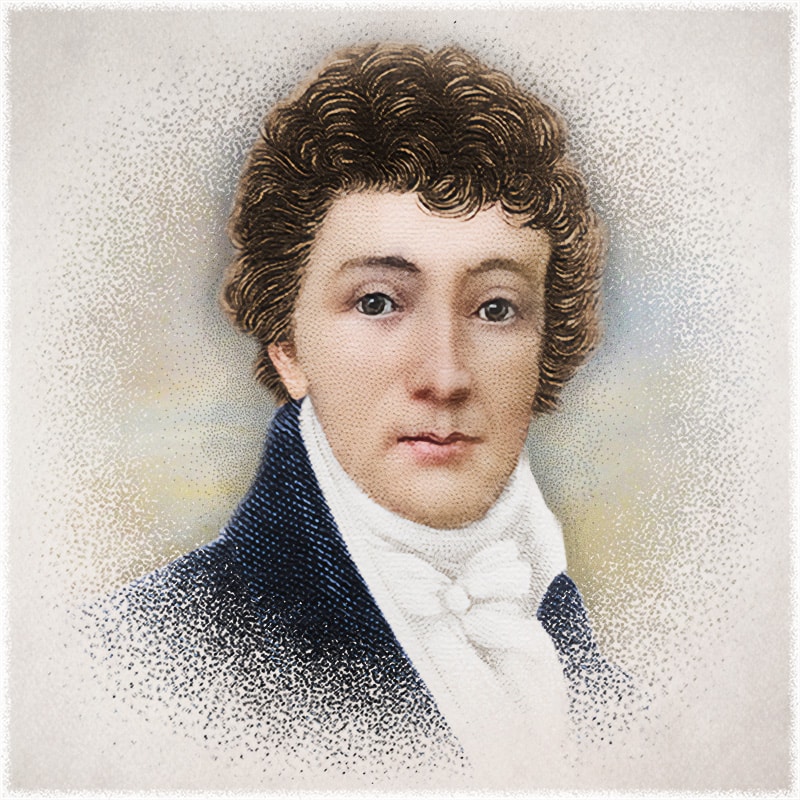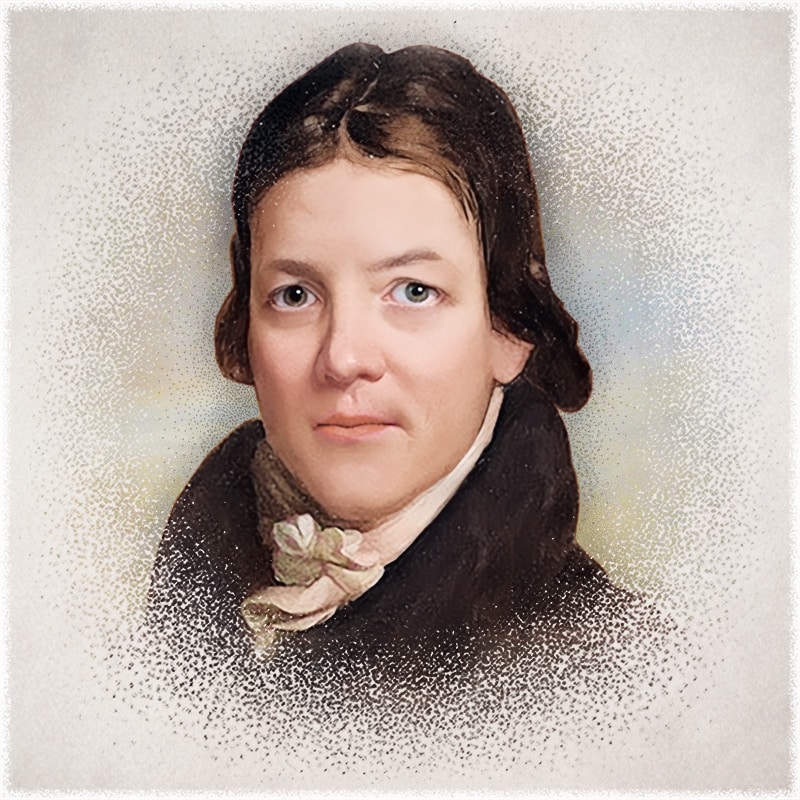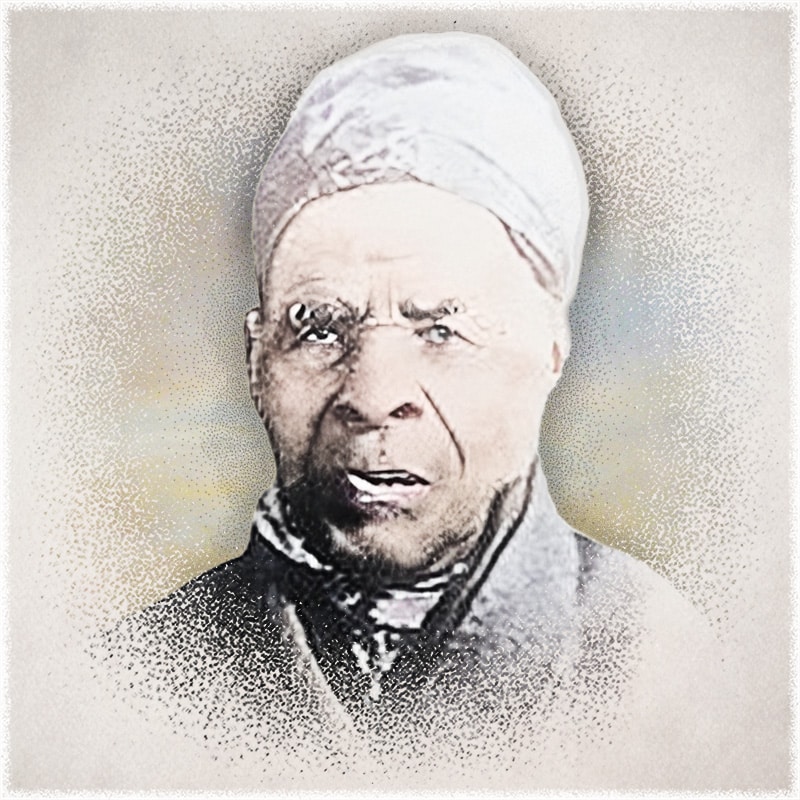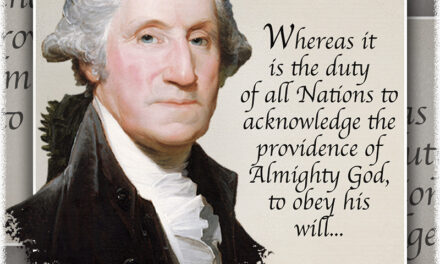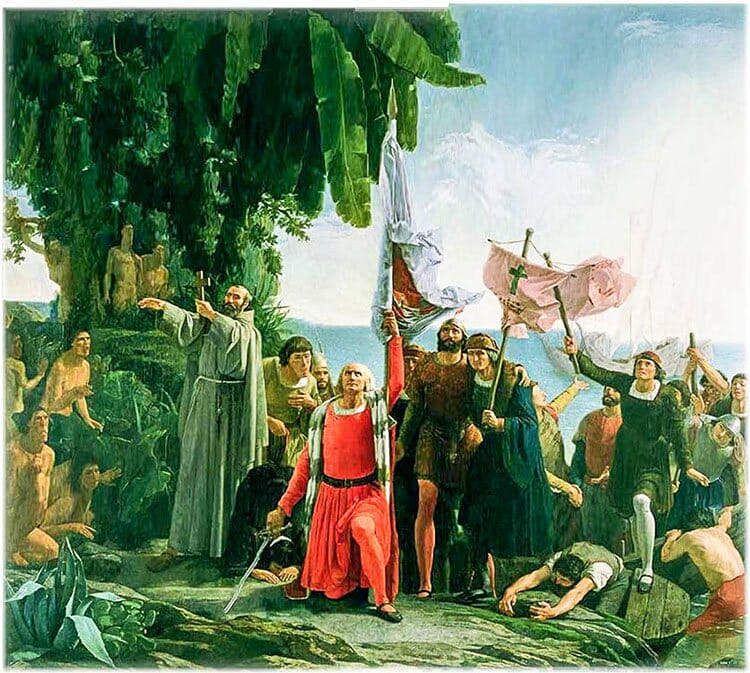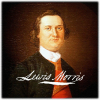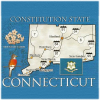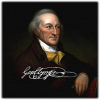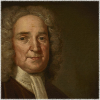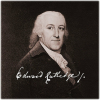Francis Scott Key Evangelizes Muslims
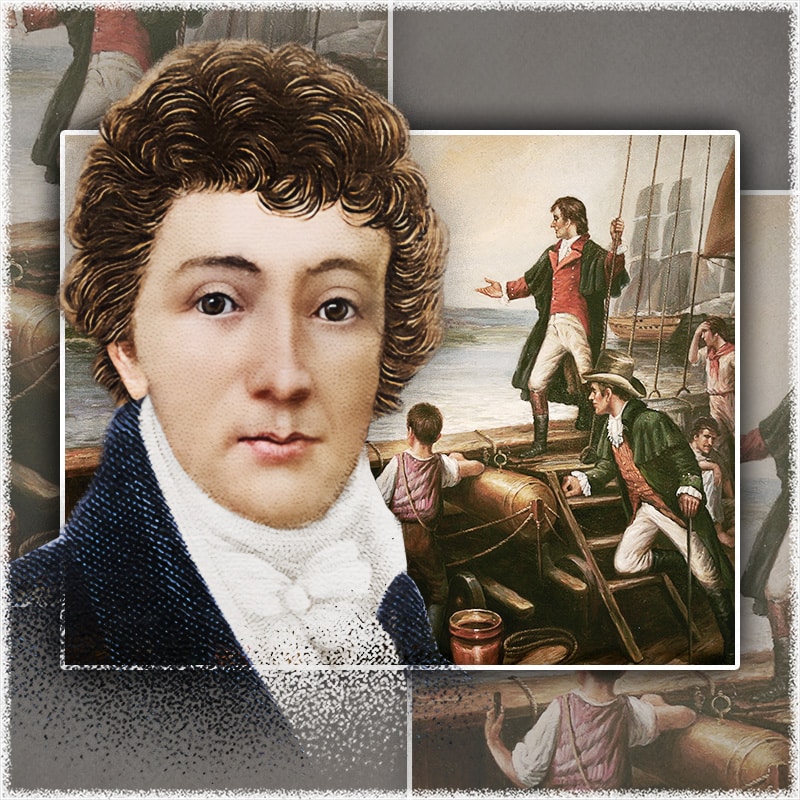
While it is true that America's Founding Fathers welcomed immigrants to America from other religions, it is not true that they esteemed those religions to be equal in standing with their own Christian religion. Contrary to the insistence of contemporary atheists, agnostics, and other secularists, America's Founding Fathers were overwhelmingly Christian! As early as the 1920s, socialists began rewriting America's history to suggest that matters related to economics were the driving influences behind the Revolution and the development of the nation. Out of the twenty-seven reasons given in the Declaration of Independence for separation from Great Britain, these socialistic writers have selected number seventeen "taxation without representation" as the most important, and often they have argued, the only reason for the War of Independence. For nearly a century, these socialistic and secular revisionists have decried and denied the Christian religious motivation behind the American Revolution. Rather than cite the writings of the Founding Fathers as proof of their arguments, these secular revisionists of American history only cite each other or in many cases, offer no proof whatsoever for their false claims. The fact is that ninety-five percent or more of America's Founding Fathers were deeply committed Christians most of whom were evangelical Christians who believed it was necessary to experience a spiritual renewal by a living faith in Jesus Christ as Savior.Francis Scott Key Evangelizes Muslims
Numbered among these Fathers was Francis Scott Key, the author of America's national anthem, "The Star-Spangled Banner." His Christian evangelistic efforts exercised toward one, John Randolph who early in life looked favorably upon Islam, was typical of the attitudes and efforts of other Founding Fathers toward followers of other religions outside of the Christian faith.Francis Scott Key Evangelizes Muslims
Article Contents
Francis Scott Key is best known as the author of America's national anthem. His father had served as an officer with distinction in America's Continental Army during the Revolutionary War. Francis was born on August 1, 1779 in Frederick County (now Carroll County), Maryland, studied law, and began his practice in Frederick, Maryland (1801) where he practiced only briefly before moving on to Georgetown, D.C. (1802).
During the War of 1812, Key was authorized by President Madison to secure the release of a friend who had been captured and was being held on board one of the ships that numbered among the British fleet near the mouth of the Potomac River in the Baltimore harbor. The British admiral granted Key's request to secure the freedom of his friend, but Key and those accompanying him were detained all night (night of Sept. 13-14, 1814) aboard the truce-boat on which they had come. After pacing the deck of the ship throughout the night, Key peered anxiously through the early morning light until he could see that the American "flag was still there," signaling that Fort McHenry had not fallen to the British. This victorious sight was the origin for his poem, The Star-Spangled Banner, which was first scribbled on the back of an envelope, the first verse of which has become our national anthem.
As a deeply committed layman in the Protestant Episcopal Church, Francis Scott Key held lay reader's license, and for many years read the service and visited the sick. One of the greatest contributions he made to America was the advancement of the Sunday school. Not only did he teach a Sunday school class at his church, Key also served as manager and vice president of the American Sunday School Union from its inception in 1824 until his death in 1843. The American Sunday School Union was responsible for establishing thousands of churches across America.
To read our article, Francis Scott Key-The Christian Patriot, please click this link.John Randolph, Congress' First Muslim?
One of Francis Scott Key's closest friends was John Randolph, a planter and Congressman from Roanoke, Virginia. Randolph served in the House of Representatives on various occasions between 1799 and 1833 and in the Senate from 1825 to 1827, and briefly served as Minister to Russia in 1830. As a cousin to President Thomas Jefferson, Randolph served Jefferson as spokesman in the House of Representatives until 1803 when relations between the two men became strained.
John Greenleaf Whittier memorialized his life in the poem, "Randolph of Roanoke," but life for Randolph was far from poetic.[1] In his youth, Randolph contracted pulmonary tuberculosis, leaving him in chronic pain and to suffer the humiliation of juvenile physical characteristics the remainder of his life.
Though raised in the Episcopal Church, Randolph passed through a period of irreligion and a period of favor for Islam, known to him as "Mahomedanism." Early in life, he had granted a place of sympathy for the irreligious schools of thought "of Hobbs and Bayle, and Shaftesbury and Bolingbroke, and Hume and Voltaire and Gibbon."[2] The "skeptical philosophy" of these irreligious authors nurtured in Randolph a "repugnance to Christianity."[3] So great was the influence of these men upon the spiritual life of young America that, had their irreligion gone unchanged by the Second Great Awakening, the moral and cultural life of America would have been smothered in its infancy.
Though the period when Randolph became sympathetic to Islam cannot be precisely determined, what is known is his allegiance to and preference for the religion of Muhammad over the Christian faith in which he was raised. Following his Christian conversion, he disclosed his previously held religious preference for Islam in a letter to a trusted friend:
Very early in life I imbibed an absurd prejudice in favor of Mahomedanism and its votaries [or followers]. The crescent had a talismanic effect on my imagination, and I rejoiced in all its triumphs over the cross (which I despised) as I mourned over its defeats; and Mahomet II himself did not more exult than I did, when the crescent was planted on the dome of St. Sophia, and the cathedral of the [Christian Eastern Orthodox] Constantines was converted into a Turkish mosque.[4]
In time, Randolph was persuaded to give up his appreciation for both the European irreligious intellectuals and the Arabian religion of Muhammad and his followers. As will be seen, Randolph's conversion was more than an intellectual change, but an evangelical or deeply felt spiritual conversion preceded by at least two years of spiritual struggle.
His return to Christianity began at least as early as May 1816. While serving in Congress, Randolph traveled to Georgetown, hoping to meet with Francis Scott Key, before returning home to Virginia following a session of Congress. But upon arriving in Georgetown, Randolph found that he was unable to meet with Key and took up lodging at Semmes's Hotel where he penned a letter (dated May 7, 1816) to Key. Of utmost concern to Randolph was his own spiritual condition. To Key he wrote,
Of the necessity for forgiveness I have the strongest conviction; but I cannot receive any assurance that it has been accorded to me. In short, I am in the worst conceivable situation as its respects my internal peace and future welfare. I want aid [spiritual counsel]; and the company and conversation of such a friend as yourself might assist in dispelling, for a time, at least, the gloom that depresses me.[5]
"Frank," as Randolph referred to Francis Scott Key, responded in a letter in which he encouraged Randolph in his spiritual pursuit, saying,
. . . I trust you will find within yourself a counselor and comforter who will guide you 'into all peace." . . . If, notwithstanding all your doubts and misgivings, you are sincerely and earnestly desirous to know the truth, and resolved to obey it, cost what it may, you have the promise of God that it shall be revealed to you. If you are convinced you are a sinner, that Christ alone can save you from the sentence of condemnation incurred by your sins, and from the dominion of them; if you make an entire and unconditional surrender of yourself to his service, renouncing that of the world and of yourself; if you thus humbly and faithfully come to him, 'he will in no wise cast you out.'[6]
For at least two years (from 1816 to 1818), John Randolph continued to struggle with regard to his spiritual state. Finally, during the summer of 1818, he experienced a spiritual transformation, the results of which continued throughout the rest of his life. The details surrounding his spiritual transformation have been captured in a sweeping summary of this period of his life by his biographer. In poor physical health, Randolph traveled to White Sulphur Springs, spent some time in Lynchburg, traveled on to Botetourt County where he ascended the Peaks of Otter the highest point of the Blue Ridge Mountains in Virginia and then returned home to Roanoke. His biographer writes,
There seems to have been a total change in his mind about this time. From the deepest gloom and despondency, he seems to have attained clearness and satisfaction on the subject of religion. He said they wanted him to go to the Springs, but he had found a spring here, on this hill (Roanoke), more efficacious a well a fountain of living waters.[7]
To celebrate his conversion, he penned a letter to his friend, Francis Scott Key, on September 7, saying,
Congratulate me, dear Frank . . . I am at last reconciled to my God, and have assurance of his pardon, through faith in Christ, against which the very gates of hell cannot prevail. Fear hath been driven out by perfect love. I now know that you know how I feel; and within a month, for the first time, I understand your feelings and character, and that of every real Christian.[8]
Francis Scott Key believed in and attempted to evangelize Muslims and the irreligious. Not only was he instrumental in the Christian conversion of John Randolph of Roanoke, but Key also attempted to convert other Muslims to faith in Christ. It was the practice of Francis Scott Key to distribute Arabic translations of the Bible to Muslims, hoping to win them to Christ. A low percentage of slaves who were brought to America were Muslims. One such individual was Omar Ibn Sayyid, who was brought to America as a Muslim slave about 1807.[9] At the request of John Louis Taylor (Chief Justice of North Carolina's Supreme Court), Key sent an Arabic Bible to Sayyid in 1819. The result was the conversion of Sayyid, who, on December 3, 1820, joined the First Presbyterian church of Fayetteville, North Carolina.[10] The number of Muslim slaves whom Francis Scott Key influenced with his Arabic Bibles cannot presently be determined with any degree of accuracy; the final tally of Key's converts will finally be made known in eternity.
The author of America's national anthem was not hesitant to share his evangelical faith with those around him, not discriminating between national leaders inclined toward Islam or Muslim slaves brought to America from Africa. As they have done with nearly all of America's Founding Fathers, secular historians have attempted to revise the life and legacy of Francis Scott Key, heaping ridicule and insult upon him. To achieve their goals, these secular historians dare not develop their writings from original sources, for the historical record demonstrates that the strength of America has been established upon the Christian influence of good and godly leaders such as Francis Scott Key.
In the example of this Founding Father, contemporary Christians find one example of how to evangelize Muslims. May God give us the courage today to follow that example!
America deserves to know its true heritage.
Please contribute today!
[1] "John Randolph of Roanoke," Wikipedia (http://en.wikipedia.org/wiki/John_Randolph_of_Roanoke, February 11, 2015).
[2] Hugh A. Garland, The Life of John Randolph of Roanoke (New York: D. Appleton and Co., 1853) 2:100.
[3] Garland, Life of John Randolph of Roanoke, 2:100.
[4] Garland, Life of John Randolph of Roanoke, 2:102.
[5] Garland, Life of John Randolph of Roanoke, 2:86-87.
[6] Garland, Life of John Randolph of Roanoke, 2:87.
[7] Garland, Life of John Randolph of Roanoke, 2:99.
[8] Garland, Life of John Randolph of Roanoke, 2:99-100.
[9] Thomas A. Tweed, "Islam in America: From African Slaves to Malcolm X," National Humanities Center (http://nationalhumanitiescenter.org/tserve/twenty/tkeyinfo/islam.htm, February 11, 2015).
[10] "Sayyid, Omar Ibn," Davidson College Archives and Special Collections (http://sites.davidson.edu/archives/encyclopedia/omar-ibn-sayyid, February 11, 2015).

